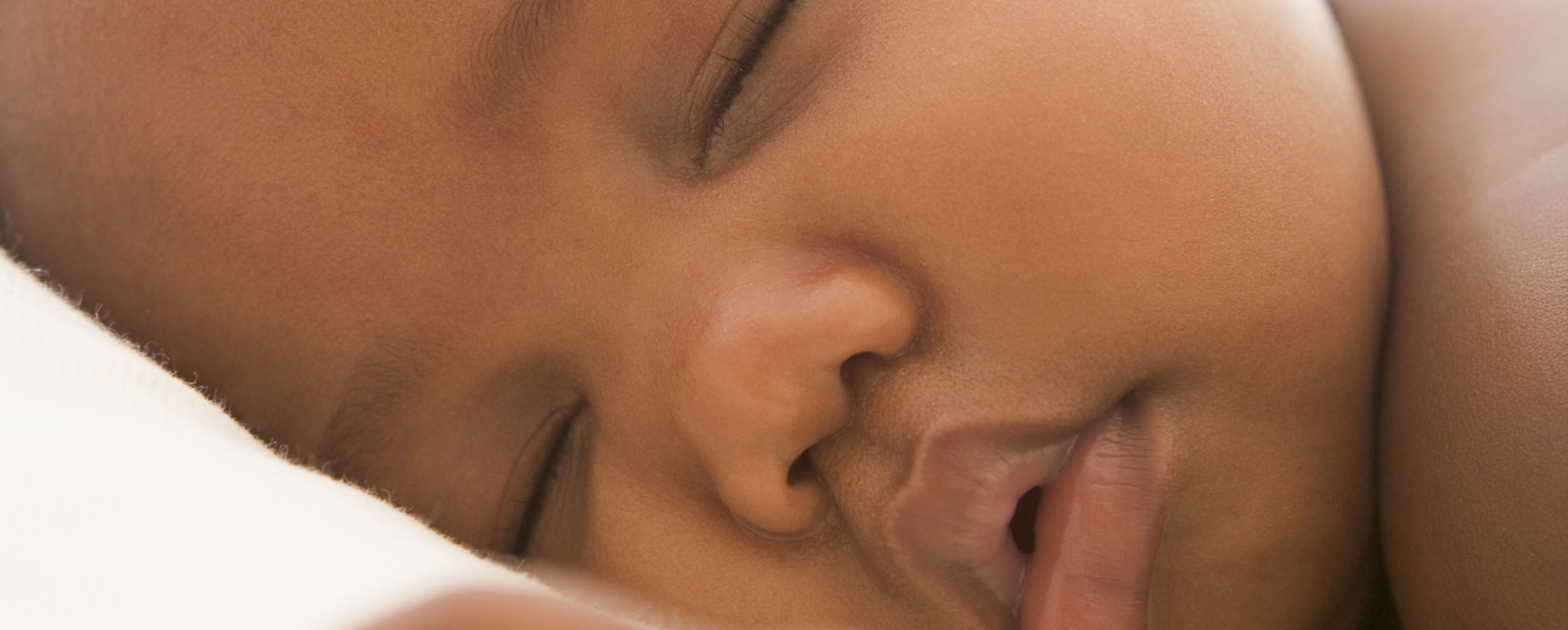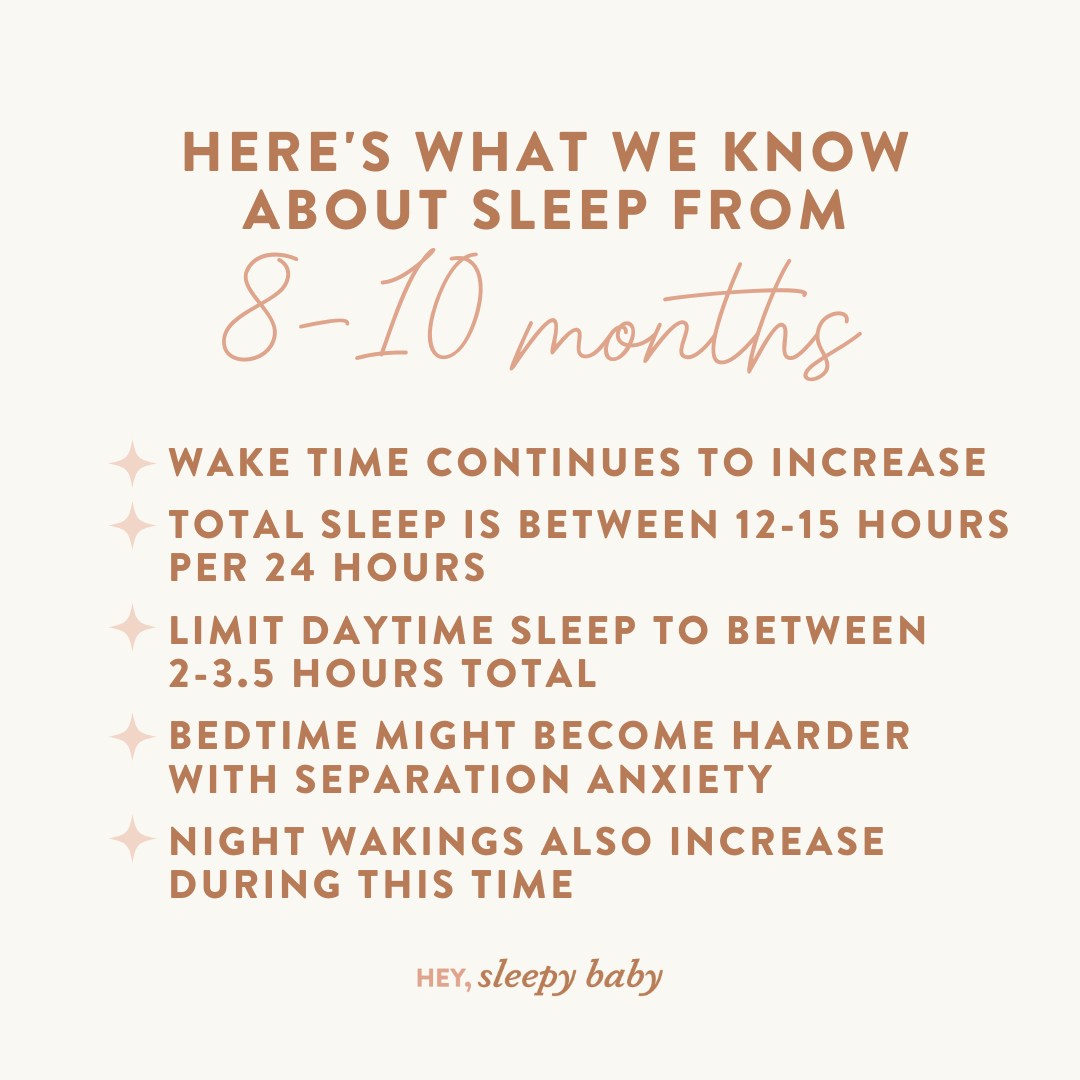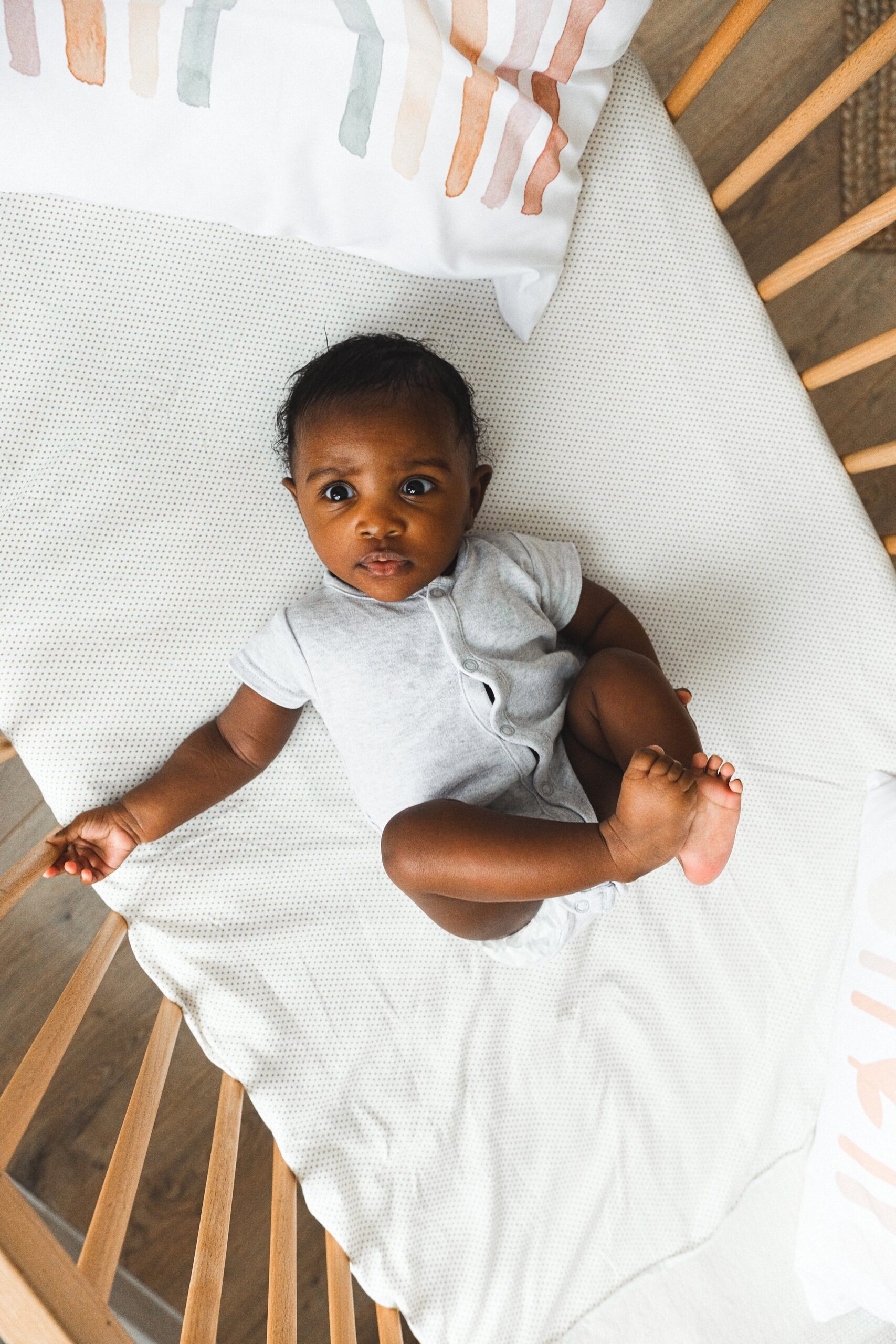The 8-10 month period is SO busy for babies. They are absolutely bursting with energy and new skills. This also may be a very frustrating and fussy period for babies, and this is common. We see so many new skills emerging, and it’s common with any big surge in development to also see disrupted sleep. Many parents experience this time as the most challenging in the first year of life.
A few things you may notice your 8-10 month old doing:
Sleep at 8-10 Months Old
Sleep can be tricky at this age for lots of reasons, including the things listed above. The common “8 Month Sleep Regression” (or PROgression) can be very difficult for parents. Here’s what else to know about sleep at this age:
-
Wake time continues to increase. Most babies in this age range have wake windows between 2-4 hours and they might vary throughout the day. Most babies will drop to 2 naps around now, and may adapt well to a “2, 3, 4” wake window schedule. 2 hours between morning wake and first nap, 3 hours between naps, and 4 hours between second nap and bedtime.
What to try:
Time for another “baby bootcamp” to help baby practice those new skills! Lots of babies are crawling, pulling to stand, cruising etc. by this age and love to practice during the night. Try to give them plenty of floor time and time outside so they can get lots of exercise, sensory input, and practice on those milestones during the day.
Experiment with wake times and naps if sleep is declining. If your baby is fighting sleep, taking very short naps, taking forever to fall asleep for bedtime, etc. it could be that they are ready for a nap transition or more wake time in between naps. Most babies at this age are down to 2 naps per day. If your baby is still on 3 naps this could be why you’re struggling with getting them down. Babies need enough sleep pressure to be able to fall asleep and stay asleep.
Get outside as much as you can. This helps get your baby stimulation and sensory input so that they are ready for sleep.
Rule out any food intolerances or allergies if you’re noticing any physical symptoms (changes in poop, discomfort/ gas, vomiting, rashes, etc.) in addition to poor sleep.
Hang in there! This is a tough time for many parents and taking care of yourself and your own sleep should be job number one. Incorporating a nightly bedtime routine for yourself that includes calming elements like a cup of tea, journaling or meditation, skincare or a shower/ bath, etc. can help set yourself up for good chunks of rest in between night wakings. You also may decide to change things up with how/ who responds to your baby when they wake, if possible getting a partner involved so that you can have a solid stretch of sleep.
For more info and tips on baby sleep, visit my Instagram page!
Was this helpful? Save it for later!





